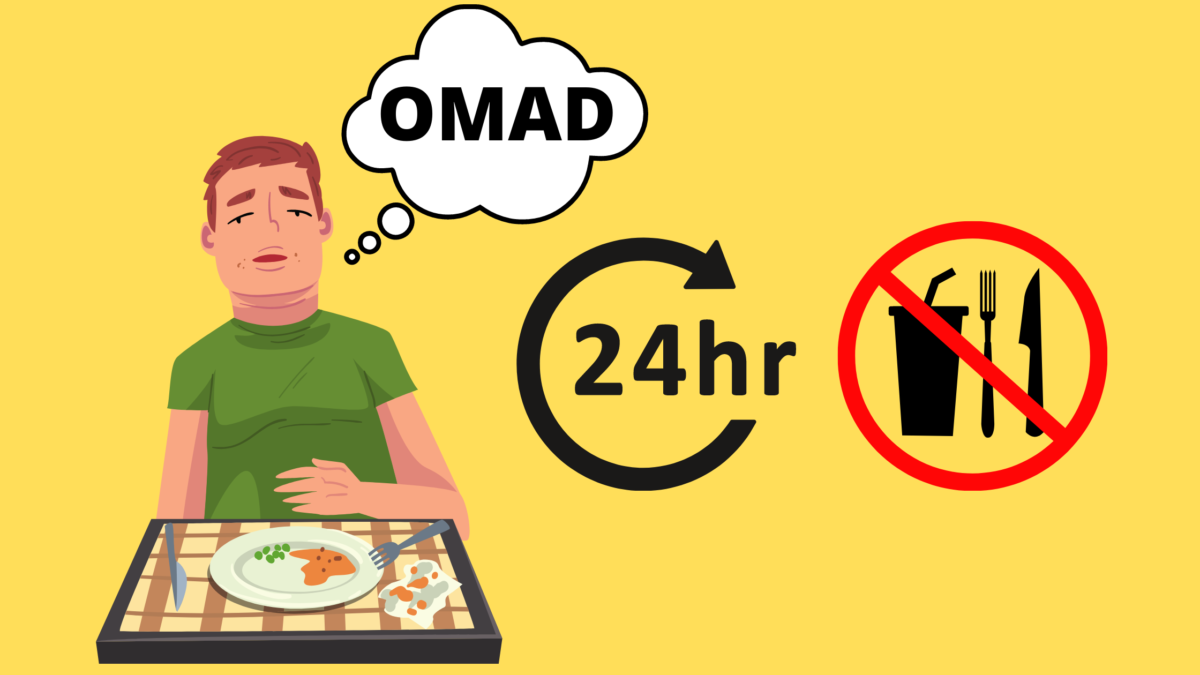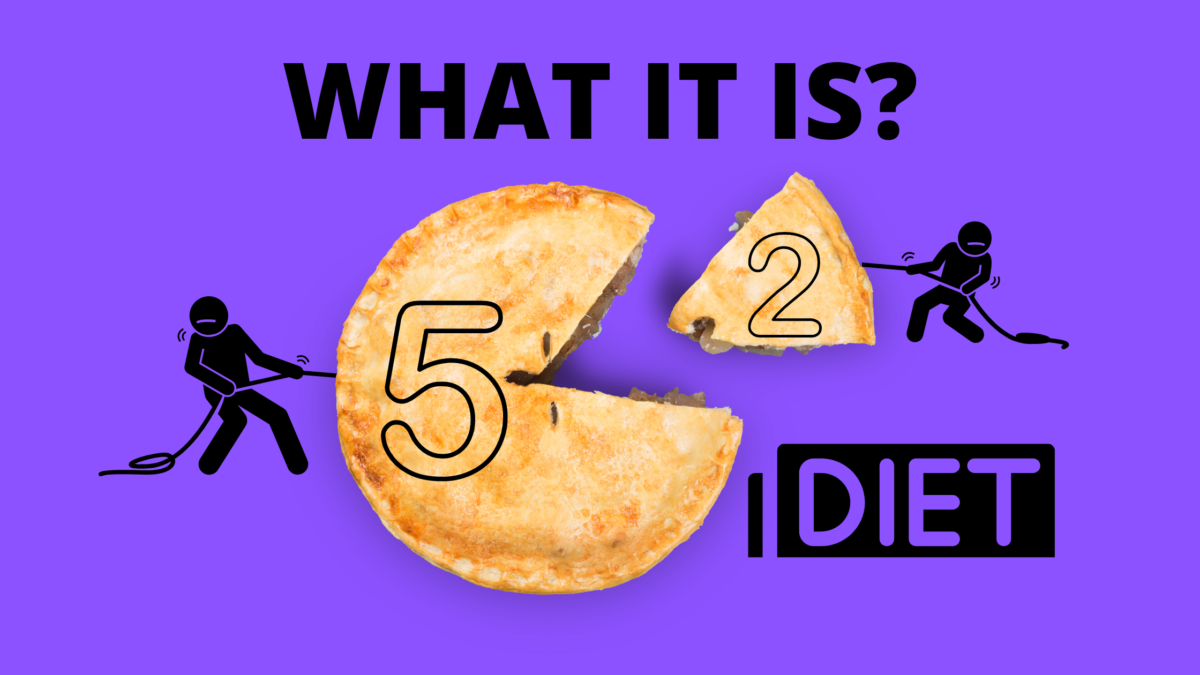Quick Links
Fasting has long been a part of human culture, with roots in religious, cultural, and health practices. Extended fasting, particularly the 72-hour and 96-hour fasts, has gained popularity in recent years as more people explore its potential health benefits. But what exactly is extended fasting, and how do the 72-hour and 96-hour fasts compare? One of the key benefits of extended fasting is autophagy, a process where the body cleans out damaged cells and regenerates new ones. In this post, ’72 vs. 96 Hour Fast,’ we will compare these fasting methods to see if it safe for you.
What is Extended Fasting?

Extended fasting refers to voluntarily abstaining from food and caloric intake for a prolonged period, usually beyond 24 hours. While intermittent fasting typically involves shorter fasting windows, such as 16 hours of fasting followed by an 8-hour eating window, extended fasting pushes the boundaries further, offering significant benefits for metabolic health. The two most common durations are the 72-hour fast and the 96-hour fast. (1)
The 72-hour and 96-hour fasts are popular choices for those looking to delve deeper into fasting’s potential benefits. Each has its unique advantages and challenges, and choosing between them often depends on your health goals, experience with fasting, and lifestyle.
Both 72-hour and 96-hour fasts can improve insulin sensitivity.
Note: Before we continue, I have a special gift for you. I call this the IFLG, which stands for Intermittent Fasting Link of Gold. This link will give you access to all of our articles and product recommendations about intermittent fasting. Here is your IFLG link ► IFLG
Purpose and Benefits of Extended Fasting

Keywords: immune system, 72 vs 96 hour fast, human growth hormone, 72 vs 96 hour fast, lose weight, 72 vs 96 hour fast, muscle mass, 72 vs 96 hour fast, intestinal stem cells, 72 vs 96 hour fast, extended fasting, 72 vs 96 hour fast, all the food, 72 vs 96 hour fast, growth hormone, 72 vs 96 hour fast.
Why do people embark on extended fasting? The reasons vary, but common goals include weight loss, improved metabolic health, and enhanced mental clarity. Understanding the purpose behind these longer fasts can help you determine which duration might be best for you. (2)
Health and Wellness Goals
Extended fasting is often pursued for its potential health benefits. For many, it’s a way to kickstart weight loss, burn fat, and improve overall metabolic health. Extended fasting can help stabilize blood pressure and reduce the risk of heart-related conditions. Others may seek the deep cellular repair that occurs during prolonged fasting, where the body’s stem cells are activated to repair and regenerate tissues.
The Growing Popularity of Long Fasts
As more research highlights the benefits of fasting, particularly extended fasting, its popularity continues to grow. Many people are drawn to the promise of improved insulin sensitivity, reduced blood glucose levels, and enhanced immune function.
The Science Behind Fasting

Understanding the science behind fasting can provide insight into why these extended fasts are so powerful.
Understanding the Fasting Process
Fasting triggers a series of metabolic changes in the body. When you stop eating, your body first uses up glycogen stores in the liver for energy. As these stores deplete, typically within the first 24 hours, your body begins to switch from glucose to fat for energy, entering a state known as ketosis. This shift is crucial for accessing the health benefits associated with extended fasting. (3)
Key Metabolic Changes During Fasting
During fasting, your body experiences several metabolic changes. Insulin levels drop, allowing fat stores to be accessed more easily. Ketone bodies, produced from fat, become the primary energy source for your body and brain. This shift to fat burning mode is a key factor in weight loss and improved metabolic health.
Hormonal Changes and Stem Cell Production During Fasting

Keywords: hour fast, 72 vs 96 hour fast, stable blood sugar, 72 vs 96 hour fast, insulin sensitivity, 72 vs 96 hour fast, nutritious foods, 72 vs 96 hour fast, insulin levels, 72 vs 96 hour fast, healthy weight, 72 vs 96 hour fast, nutrient-dense foods, 72 vs 96 hour fast, prolonged fasting, 72 vs 96 hour fast.
Fasting doesn’t just affect your metabolism; it also triggers significant hormonal changes that play a critical role in your overall health.
Insulin, Glucagon, and Human Growth Hormone
As insulin levels decrease, glucagon levels rise, promoting fat breakdown and ketone production. Meanwhile, human growth hormone (HGH) levels increase, supporting muscle mass preservation and fat burning. This combination of hormonal shifts is one of the reasons fasting is effective for losing weight and improving body composition. (4)
The Role of Ghrelin and Leptin
Ghrelin, often called the “hunger hormone,” increases during fasting, signaling your body to eat. However, as you continue fasting, your body adapts, and ghrelin levels may stabilize. Leptin, the hormone that signals satiety, also plays a role, helping to regulate energy balance during extended fasts. (5)
Stages of Fasting

Understanding the different stages of fasting can help you anticipate what happens in your body during a 72-hour or 96-hour fast.
Initial 24 Hours: Glycogen Depletion
In the first 24 hours of fasting, your body primarily relies on glycogen stores in the liver for energy. As these stores are depleted, your body begins to shift from glucose to fat for energy, marking the transition into ketosis.
48-72 Hours: Ketosis and Fat Adaptation
Between 48 and 72 hours, your body enters deeper ketosis, where fat becomes the primary energy source. During this period, your body becomes more efficient at burning fat, and you may notice improved mental clarity and stable blood sugar levels.
72-96 Hours: Deep Ketosis and Autophagy
After 72 hours, your body enters a state of deep ketosis and enhanced autophagy. Autophagy is a process where your body cleans out damaged cells and regenerates new ones, including intestinal stem cells. This stage is crucial for cellular repair and overall health.
Introduction to the 72-Hour Fast

Keywords: caloric intake, 72 vs 96 hour fast, processed food, 72 vs 96 hour fast, calorie intake, 72 vs 96 hour fast, ketone bodies, 72 vs 96 hour fast, processed foods, 72 vs 96 hour fast, food intake, 72 vs 96 hour fast, cancer cells, 72 vs 96 hour fast, hunger hormones, 72 vs 96 hour fast.
The 72-hour fast is a popular choice for those looking to experience the benefits of extended fasting without going too far beyond their comfort zone.
Why Choose a 72-Hour Fast?
A 72-hour fast strikes a balance between achieving significant health benefits and maintaining a manageable fasting period. It’s long enough to promote fat burning, improve insulin sensitivity, and trigger autophagy, but short enough that most healthy adults can complete it without severe discomfort.
Common Goals and Outcomes
Common goals for a 72-hour fast include weight loss, improved metabolic health, and enhanced mental clarity. Many people also use it as a way to reset their eating habits and break free from processed foods and junk food.
Key Benefits of a 72-Hour Fast: Mental Clarity
The benefits of a 72-hour fast are numerous, making it a compelling choice for those interested in extended fasting.
Cellular Rejuvenation and Detoxification
One of the key benefits of a 72-hour fast is cellular rejuvenation. During this period, your body enters autophagy, where it cleans out old cells and regenerates new ones. This process is essential for maintaining healthy tissues and organs.
Mental Clarity
A 72-hour fast can significantly enhance mental clarity, providing a sharper focus and improved cognitive function. This benefit is often reported by those who practice extended fasting.
Improved Insulin Sensitivity
A 72-hour fast can significantly improve insulin sensitivity, which is crucial for maintaining stable blood sugar levels and reducing the risk of type 2 diabetes. By lowering insulin levels, your body becomes more efficient at using stored fat for energy.
Challenges of a 72-Hour Fast

While a 72-hour fast offers many benefits, it’s not without its challenges.
Physical and Mental Hurdles
Physical challenges during a 72-hour fast can include hunger, muscle cramps, and fatigue. Mentally, you may experience cravings, irritability, and difficulty concentrating. However, these challenges often decrease as your body adapts to the fasting state.
Tips for Overcoming Common Challenges
To overcome these challenges, it’s important to stay hydrated, maintain electrolyte balance, and keep busy to distract yourself from hunger. Herbal tea, bone broth, and water can help alleviate hunger and support your digestive system during the fast.
Introduction to the 96-Hour Fast

Keywords: fasting window, 72 vs 96 hour fast, ketogenic diet, 72 vs 96 hour fast, 96 hour, 72 vs 96 hour fast, metabolic health, 72 vs 96 hour fast, disordered eating, 72 vs 96 hour fast, healthy lifestyle, 72 vs 96 hour fast, muscle cramps, 72 vs 96 hour fast, keto diet, 72 vs 96 hour fast.
For those looking to push the boundaries of fasting, the 96-hour fast offers an even deeper experience.
What Sets a 96-Hour Fast Apart?
A 96-hour fast extends the benefits of a 72-hour fast, allowing for deeper autophagy, enhanced immune function, and greater fat loss. This longer duration also provides more time for stem cell production and cellular repair.
Why Extend Beyond 72 Hours?
Extending your fast to 96 hours can amplify the health benefits you experience. This longer fast may be particularly beneficial for those looking to burn fat, improve immune function, and achieve a deeper state of ketosis.
Key Benefits of a 96-Hour Fast
The benefits of a 96-hour fast are similar to those of a 72-hour fast, but with some added advantages.
Deeper Autophagy and Enhanced Immune Function
A 96-hour fast allows your body to reach deeper levels of autophagy, which can lead to more thorough cellular repair and rejuvenation. Additionally, this extended fast can rejuvenate immune cells and enhance immune system regulation, boosting immune function and making it an excellent choice for overall health.
Potential for Greater Fat Loss
The benefits of a 96-hour fast include greater fat loss due to more time in ketosis. This extended period of fat burning can help you achieve your weight loss goals more effectively.
Challenges of a 96-Hour Fast

Despite its benefits, a 96-hour fast is not without its difficulties.
Increased Fatigue and Hunger
As the fast progresses, you may experience increased fatigue, hunger, and electrolyte imbalances, making it more challenging to maintain motivation. Muscle cramps and electrolyte imbalances are also more likely during a 96-hour fast.
Strategies for Maintaining Motivation
To stay motivated during a 96-hour fast, it’s important to focus on the long-term benefits and remind yourself why you started. Staying hydrated, taking short walks, and practicing mindfulness can also help you push through the challenging moments.
Comparing 72-Hour and 96-Hour Fasts

Keywords: healthy adults, 72 vs 96 hour fast, losing weight, 72 vs 96 hour fast, solid foods, 72 vs 96 hour fast, immune cells, 72 vs 96 hour fast, body weight, 72 vs 96 hour fast, last meal, 72 vs 96 hour fast, electrolyte imbalances, 72 vs 96 hour fast, lost weight, 72 vs 96 hour fast, insulin resistance, 72 vs 96 hour fast, fasting period.
When deciding between a 72-hour and a 96-hour fast, it’s important to consider the differences in benefits, challenges, and overall impact on your body.
Health Benefits: 72 vs. 96 Hours
Both the 72-hour and 96-hour fasts offer significant health benefits, including improved insulin sensitivity, weight loss, and enhanced immune function. However, the 96-hour fast may provide deeper autophagy and greater fat loss due to the extended time in ketosis.
Psychological Impact: 72 vs. 96 Hours
The psychological effects of fasting can vary between the 72-hour and 96-hour durations. While both fasts can lead to improved mental clarity and focus, the longer 96-hour fast may present more mental challenges due to increased fatigue and hunger.
Factors to Consider Before Choosing a Fast

Before deciding whether to attempt a 72-hour or 96-hour fast, consider the following factors.
Your Health and Medical History
If you have any pre-existing medical conditions or concerns, it’s important to consult with a healthcare professional before attempting an extended fast. Conditions like diabetes, eating disorders, or electrolyte imbalances can be exacerbated by prolonged fasting.
Experience with Fasting
If you’re new to fasting, starting with a shorter duration like a 24-hour or 48-hour fast may be more manageable. Once you’re comfortable with these shorter fasts, you can gradually work your way up to a 72-hour or 96-hour fast.
Preparing for an Extended Fast
Proper preparation is key to a successful extended fast.
How to Prepare Physically and Mentally
In the days leading up to your fast, focus on consuming nutrient-dense foods and staying hydrated. Mentally, it’s important to set clear goals and prepare yourself for the challenges ahead. Consider tapering down your food intake in the days leading up to the fast to make the transition easier.
Creating a Supportive Environment
Creating a supportive environment can make a significant difference during your fast. Surround yourself with supportive friends or family members, and consider joining online fasting communities for encouragement and advice.
What to Expect During an Extended Fast

Knowing what to expect during your fast can help you navigate the challenges and make the most of the experience.
Physical Sensations and Changes
During an extended fast, you may experience physical sensations like hunger, muscle cramps, and fatigue. However, you may also notice positive changes like increased mental clarity, reduced inflammation, and improved digestion.
Recommended Article: 👉 16 Potential Intermittent Fasting Side Effects And Their Solution
Potential Risks and Considerations: Blood Glucose Levels

While extended fasting offers many benefits, it’s important to be aware of the potential risks.
Electrolyte Imbalances and Dehydration
One of the primary risks of extended fasting is electrolyte imbalances, which can lead to muscle cramps, fatigue, and even more serious health issues. Staying hydrated and supplementing with electrolytes can help mitigate this risk.
Recommended Article: 👉45 Best Electrolyte Powder for Fasting
Risk of Disordered Eating Patterns
Extended fasting can also trigger disordered eating patterns, particularly in those with a history of eating disorders. It’s important to approach fasting with a healthy mindset and to prioritize your overall well-being over any specific fasting goals.
Is Extended Fasting Right for You?

Keywords: blood sugar, 72 vs 96 hour fast, digestive system, 72 vs 96 hour fast, 96 hour fast, 72 vs 96 hour fast, blood glucose levels, 72 vs 96 hour fast, blood glucose, 72 vs 96 hour fast, mental clarity, 72 vs 96 hour fast, stem cell production, 72 vs 96 hour fast, fat burning, 72 vs 96 hour fast, gut health, 72 vs 96 hour fast.
Deciding whether extended fasting is right for you depends on your health goals, experience, and personal preferences.
Who Should Consider Extended Fasting?
Extended fasting may be beneficial for healthy adults looking to improve metabolic health, burn fat, and support cellular repair. However, it’s not recommended for everyone, particularly those with certain medical conditions or a history of disordered eating.
Who Should Avoid Extended Fasting?
If you have a history of eating disorders, chronic health conditions, or are pregnant or breastfeeding, extended fasting may not be safe for you. Always consult with a healthcare professional before attempting an extended fast.
Practical Tips for Success

Keywords: 72 vs 96 hour fast, intermittent fasting, 72 vs 96 hour fast, body fat, 72 vs 96 hour fast, stem cells, 72 vs 96 hour fast, health benefits, 72 vs 96 hour fast, blood pressure, 72 vs 96 hour fast, eating disorders, 72 vs 96 hour fast, weight loss, 72 vs 96 hour fast, burn fat, 72 vs 96 hour fast.
To ensure a successful extended fast, consider these practical tips.
Planning Your Fasting Period
Choose a time for your fast when you can minimize stress and physical exertion. Avoid scheduling your fast during periods of high workload, social events, or other activities that may make fasting more difficult.
Monitoring Your Body’s Responses
During your fast, pay close attention to your body’s responses, including electrolyte balance. If you experience severe symptoms like dizziness, fainting, or heart palpitations, it’s important to break your fast and seek medical attention if necessary.
Final Thoughts on Extended Fasting
Extended fasting, whether for 72 hours or 96 hours, offers numerous health benefits, including weight loss, improved metabolic health, and enhanced cellular repair. However, it’s important to approach fasting with a healthy mindset, proper preparation, and a clear understanding of your goals and limitations.
Recap of Key Points
- A 72-hour fast is a manageable yet effective way to experience the benefits of extended fasting, including fat burning, improved insulin sensitivity, and enhanced mental clarity.
- A 96-hour fast offers deeper autophagy, greater fat loss, and enhanced immune function, but it also presents more significant challenges.
- Proper preparation, hydration, and a supportive environment are crucial for a successful fast.
- Always consult with a healthcare professional before attempting an extended fast, especially if you have underlying health conditions or concerns.
Encouragement and Motivation
Extended fasting can be a powerful tool for improving your health and achieving your wellness goals. With the right preparation, mindset, and support, you can successfully complete a 72-hour or 96-hour fast and reap the rewards of this ancient practice. Remember to listen to your body, stay hydrated, and prioritize your overall well-being throughout your fasting journey.
FAQs
How much weight will I lose from a 72-hour fast?
During a 72-hour fast, you can expect to lose weight, primarily due to the depletion of glycogen stores and water weight. However, the amount of weight loss varies based on factors like body weight, metabolic health, and caloric intake prior to the fast. While some body fat may be lost, much of the initial weight loss may be water. Extended fasting, such as a 72 vs 96 hour fast, can also lead to fat burning as your body shifts to using fat as its primary energy source. Keep in mind, though, that prolonged fasting can result in muscle breakdown if done too frequently or without proper preparation.
How to break a 96-hour fast?
Breaking a 96-hour fast requires careful planning to avoid overwhelming your digestive system. Start with small portions of nutrient-dense foods like bone broth or cooked vegetables to ease your body back into digestion. Avoid processed foods and high-calorie intake immediately after your fast, as this can cause digestive discomfort and spike blood glucose levels. Gradually reintroduce solid foods over the next 24 to 48 hours, focusing on stable blood sugar levels and insulin sensitivity. Remember, after a prolonged fasting period like a 96-hour fast, your body needs time to adjust to regular eating, so keep your meals balanced and nutritious.
Does a 72-hour fast boost metabolism?
Yes, a 72-hour fast can boost metabolism by enhancing fat oxidation and increasing the production of human growth hormone. During this fasting window, your body shifts into a fat-burning mode, utilizing body fat as a primary energy source. The mild stress induced by fasting can also improve insulin sensitivity and stable blood sugar levels, contributing to better metabolic health. Additionally, the fast can promote stem cell production and improve immune function, offering various health benefits. However, it’s essential to maintain a healthy lifestyle and avoid disordered eating patterns to sustain these metabolic benefits.
Can I eat meat after a 72-hour fast?
After a 72-hour fast, it’s best to reintroduce meat gradually to avoid overwhelming your digestive tract. Start with easily digestible, lean meats like chicken or fish, and combine them with nutrient-dense foods such as cooked vegetables to support gut health. Avoid processed meats or heavy, fatty cuts initially, as your digestive system may still be sensitive. Breaking your fast with balanced, smaller meals can help maintain stable blood glucose levels and support healthy weight management. Remember, the goal is to gently transition back to your regular diet while enjoying the benefits of your fasting period.
What to Read Next?
Related Articles
Ali Webster is a seasoned researcher, communicator, and Registered Dietitian with a diverse background encompassing government, nonprofits, academia, and health care. The core belief is that science should be made accessible, understandable, and relevant to all individuals, driving the motivation behind their work. Proficient in conducting and interpreting research to shape nutrition policy decisions, the individual also excels in nutrition and health communication, consumer research survey development and implementation, and clinical nutrition. Holding a Doctorate of Philosophy with a focus on Nutrition and Epidemiology from the University of Minnesota, their dietetic internship emphasized medical nutrition therapy.

















